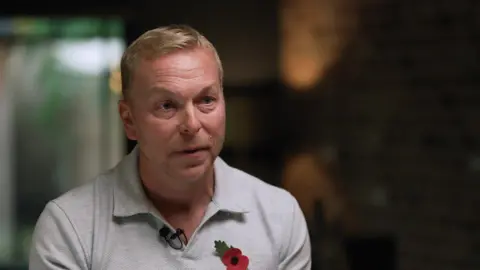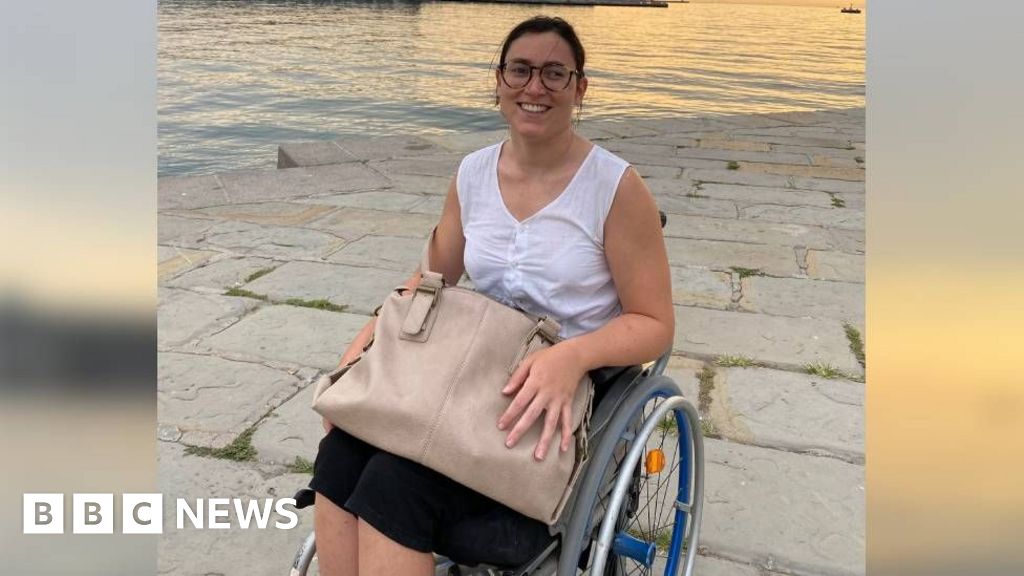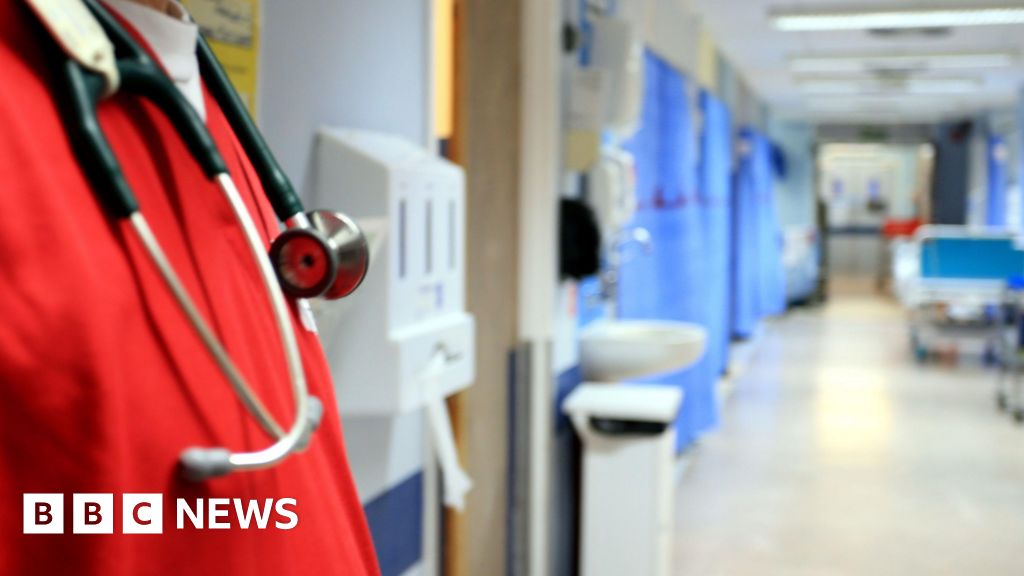
 BBC
BBC
Sir Chris Hoy says cancer diagnosis "was the biggest shock of my life"
The NHS will review whether to change its advice on testing for prostate cancer in light of Sir Chris Hoy's "powerful" call for more younger men to be checked, the health secretary has said.
Olympic cycling champion Sir Chris, 48, has advanced cancer that has spread to his bones and is terminal.
In his first TV interview since announcing his condition, Sir Chris told BBC Breakfast how people with a strong family history should consider seeing their GP for PSA (prostate-specific antigen) blood test to help spot the disease.
PSA tests are not routinely offered to men under 50 without symptoms but who may be at risk. Doctors are instead told to use their judgement.
Sir Chris told BBC Breakfast: "To me it seems a no-brainer. Why would they not reduce the age? Bring the age down and allow more men to go in and get a blood test."
Health Secretary Wes Streeting told the BBC that Sir Chris makes a powerful argument. "That's why I've asked the NHS to look at the case for lowering the age."
"It's obviously got to be evidence-led, clinically-led decisions," he said.
NHS guidelines for England say anyone can request a PSA test if they are over the age of 50.
And men of any age who have symptoms can also ask for one.
Routine PSA testing or screening is not offered on the NHS, because experts say the test is not accurate enough on its own to rule in or out cancer reliably. Doctors are looking at whether adding in MRI scans to PSA tests might improve the situation.
The charity Prostate Cancer UK backs the call, saying doing more checks could potentially save thousands of lives each year.
Spokeswoman Chiara De Biase said: "One in eight men will get prostate cancer, but there's currently no screening programme for the disease.
"If your dad or brother has had prostate cancer, or you're black, you have the highest risk of getting the disease, and we strongly recommend you talk to your GP about testing from 45.
"Right now, you need to be aware of this and bring it up with a GP yourself. As prostate cancer often has no symptoms in its earlier stages this is leading to too many men getting a late, incurable diagnosis - like Sir Chris."

 Getty Images
Getty Images
Sir Chris, one of the country's most decorated Olympians, said he had no symptoms
Sir Chris spoke of the "absolute shock and horror" he felt at his initial diagnosis.
The news that he had a terminal illness, in September 2023, came "completely out the blue".
"No symptoms, no warnings, nothing. All I had was a pain in my shoulder and a little bit of pain in my ribs."
And he spoke of the "nightmare" of learning wife Sarra had multiple sclerosis, and having to break the news to their two young children.
"We just tried to be positive and tried to say 'Do you know what? This is what we're doing and you can help because when I'm not feeling well, you can come and give me cuddles, you can be supportive, you can be happy, you can be kind to each other'."
He said he was grateful for the outpouring of support they had received and that he was focusing on the positives and the good he hopes can come from it.
'It's been the toughest year'
His news prompted a near eight-fold increase in NHS searches for prostate cancer symptoms over the following days.
"It's been the toughest year of our lives so far by some stretch," he told the BBC.
"Maybe people seeing this or hearing about my story - just by them asking their GP - will create enough of a surge of interest that people that make the decisions will go 'you know what, we need to address this'. And in the long term this will save potentially millions of lives."
He added: "I know what the end result will be. Nobody lives forever. Our time on this planet is finite. Don't waste your time worrying about stuff that isn't that important. Focus on the things that are.
"My perspective on life has changed massively. I am more thankful, I'm more grateful for each day. It's been a tough year and it's going to be tough ahead in the future too but for now, right here right now, we're doing pretty well."
The NHS advises men to speak to a doctor if they think they are higher risk of prostate cancer. A man's risk of this cancer increases with age.
Cancer Research UK says the evidence so far suggests that routinely screening people using PSA would not greatly help prevent deaths and might instead lead to men having unnecessary treatment that could cause undue stress and potential side effects.
PSA is not diagnostic. A raised PSA level does not necessarily mean there is cancer. It can be elevated with other conditions too, such as inflammation.
If you ask for a PSA test, your doctor may advise you to think carefully about the benefits and disadvantages.
The full interview - Sir Chris Hoy: Finding Hope - will be shown on BBC One at 20:00 GMT on Tuesday, 5 November and will then be available to watch on BBC iPlayer. You can also listen in full on BBC Sounds.
 (1).png)
 1 month ago
3
1 month ago
3













